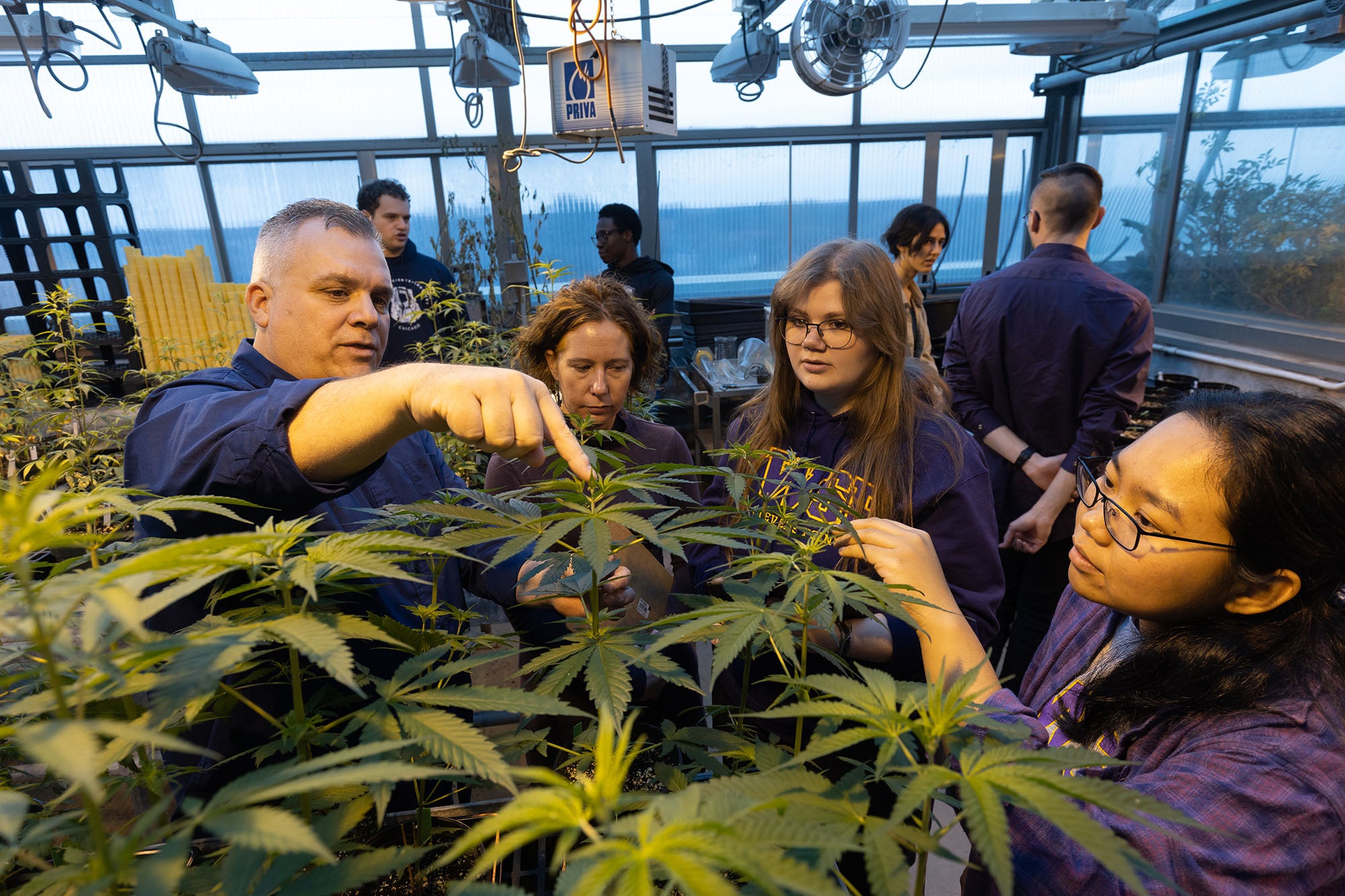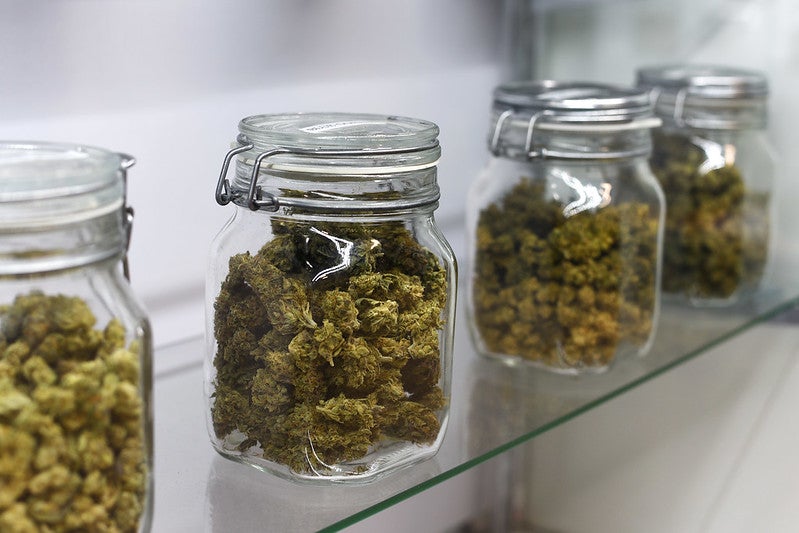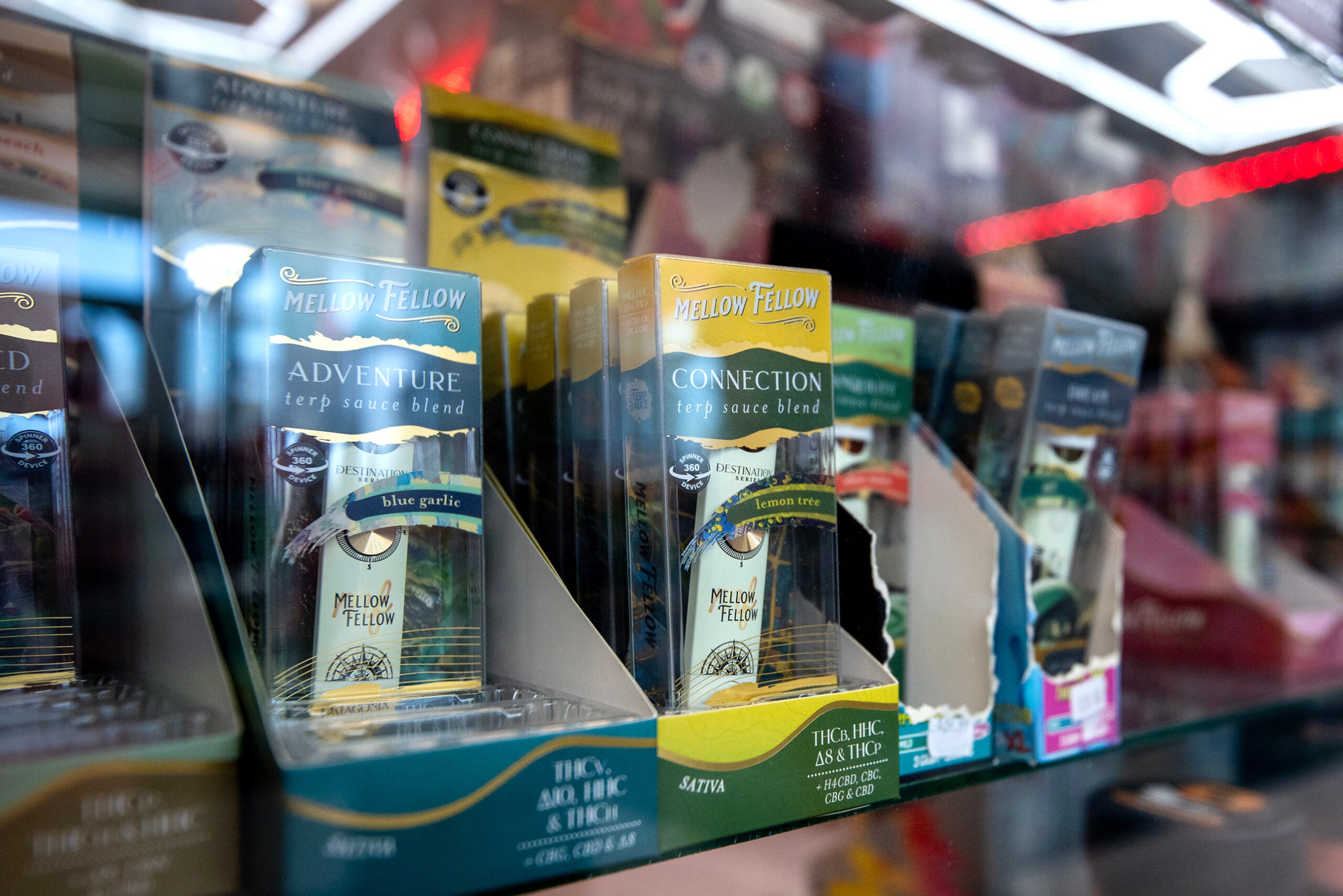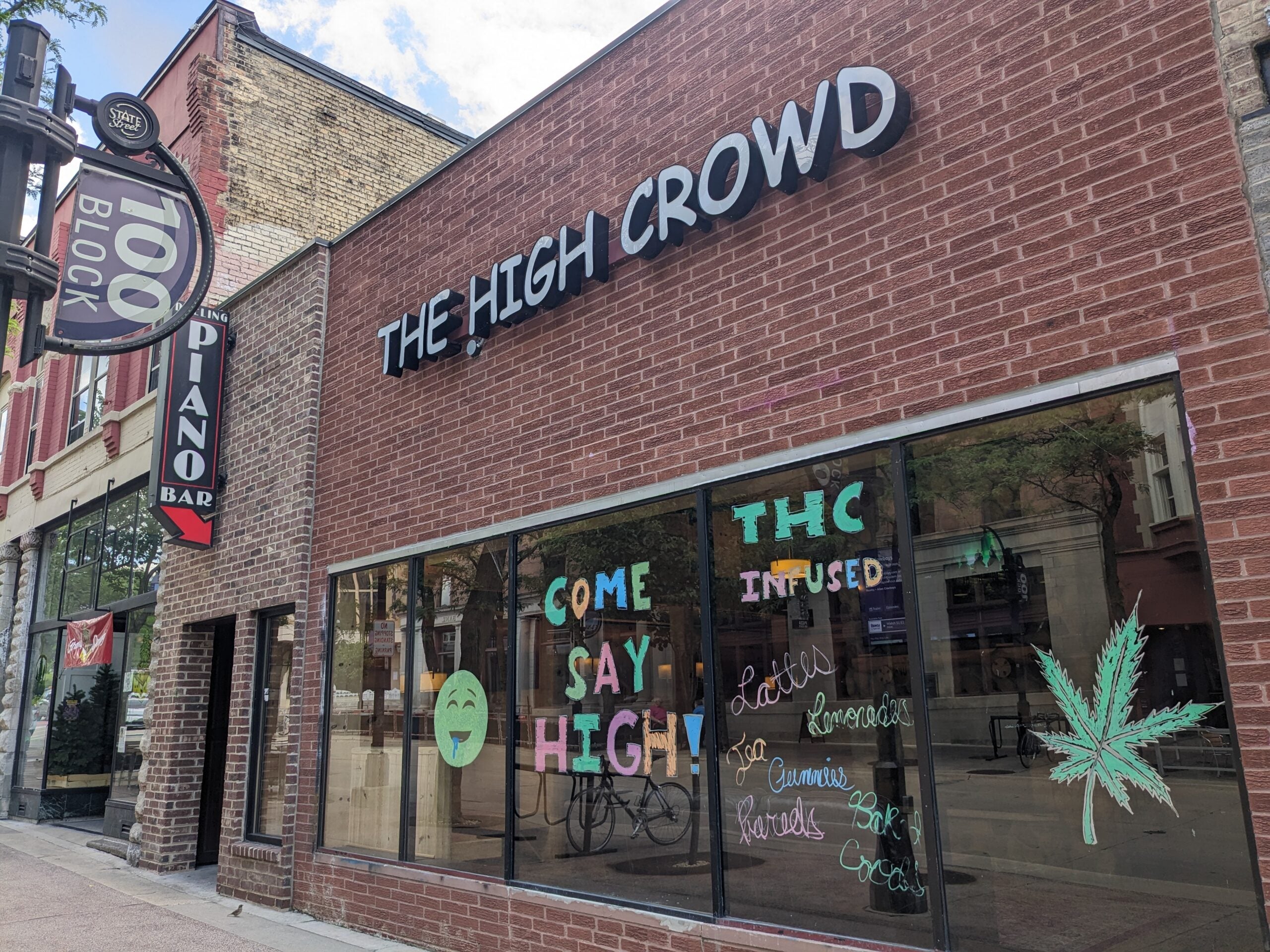A new program at the University of Wisconsin-Stevens Point aims to prepare students to work in the industry of legal cannabis — a business that two professors at the college say is growing rapidly in states around Wisconsin.
Last fall, the university launched a certificate program that allows students to enroll in three online classes to learn about the science of cannabis. The courses cover an array of topics related to the plant, ranging from the history of cannabis cultivation and controversies surrounding it to a course exploring the chemical compounds present in cannabis.
Professor Brian Barringer and Associate Professor Shannon Riha are two of the professors teaching the new cannabis science program. Barringer told WPR’s “Wisconsin Today” they created the program because of the rapid growth in the legal cannabis industry nationwide. Their program website cites a jobs report from 2022 finding that jobs in the industry more than tripled between 2017 and 2022.
News with a little more humanity
WPR’s “Wisconsin Today” newsletter keeps you connected to the state you love without feeling overwhelmed. No paywall. No agenda. No corporate filter.
But the researchers are exploring more than just science involving recreational use of cannabis. Barringer and Riha worked together on one project to explore how cannabis can be used to remove toxic per- and polyfluoroalkyl substances — also known as PFAS — from soil.
“When chemical compounds are found in the soil, they often get taken up into the plant. We can start to understand how much and where those chemicals are stored within the plant just by doing some chemical analysis,” Riha said. “If cannabis is grown in soil that’s contaminated with PFAS, that PFAS gets pulled up into the various plant tissue and the size of the PFAs seems to be correlated to how much and how far up the plant it goes.”
The professors talked with host Rob Ferrett about the complexities of teaching classes on cannabis and what students can expect from their courses.
The following was edited for clarity and brevity.
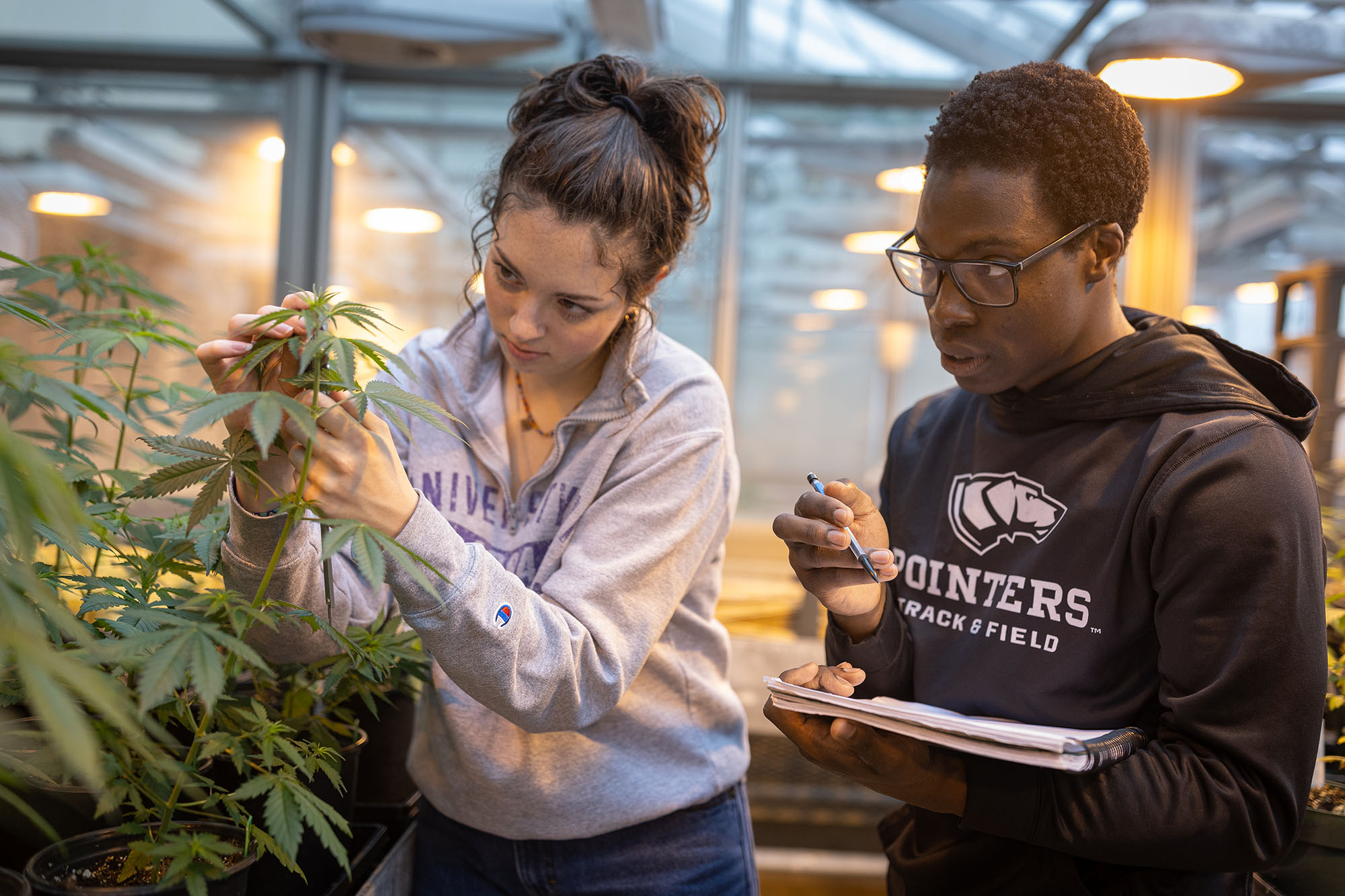
Rob Ferrett: There are many legal jobs, at least under state laws in states other than Wisconsin, in the cannabis industry. Can you talk about the demand for people who know this stuff and what you are training people to be ready for?
Brian Barringer: As of 2022, the industry had experienced at least 27 percent job growth nationally for five years in a row. And that’s really remarkable. That rivals, if not surpasses, pretty much any other industry that you can name, whether construction, business, etc.
The legal landscape of cannabis is complex, and it’s changing on an almost daily basis. Right now in the state of Wisconsin, what we call marijuana, which is cannabis that has high levels of delta-9 THC, is still illegal. But most other forms of cannabis are very much legal with the right licenses here in the state.
Much of what we do is grow hemp, which has very low levels of THC. The legal landscape surrounding the industry is changing, and has been changing for some time, but that has not stopped the industry from growing. Certainly states around us like Michigan and Illinois and now Minnesota are enjoying just astronomical job growth.
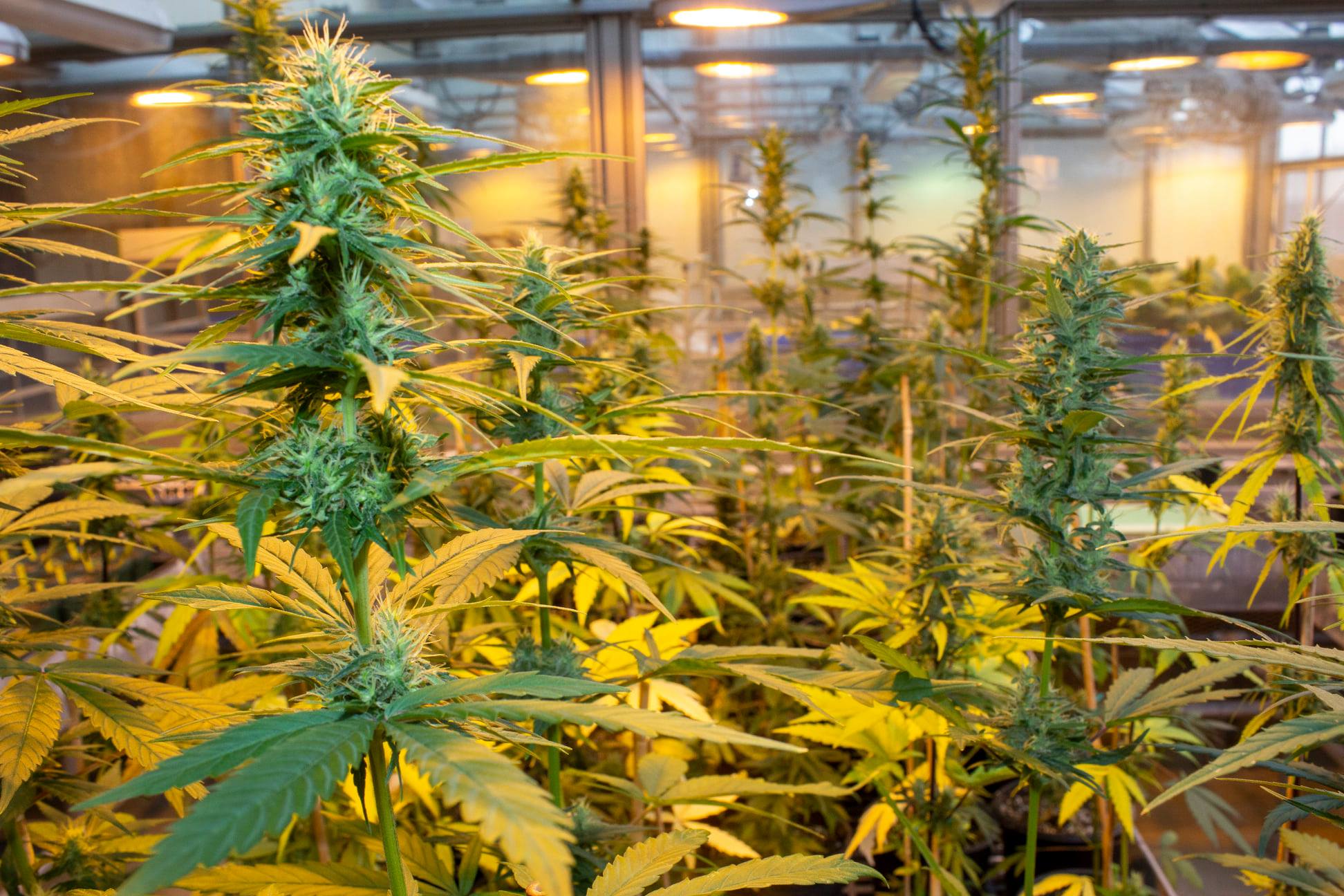
RF: Many uses of cannabis are legal in some states, but not under federal law and not legal here in Wisconsin. Does that raise challenges for making this program happen, but also for the kind of things you can do and talk about?
BB: A little bit. It also makes things more interesting, I would argue.
I’ll emphasize that everything we do here at our university and in this program is legal. We have growers’ licenses through the USDA that allow us to grow hemp, which is low-THC cannabis with very little psychoactive properties. But there’s no doubt that this sets up challenges for us.
Shannon Riha: I think the biggest challenge with the ever-changing landscape and the legality is that what we talk about in 2024 may not hold in terms of certain legislation. If I’m talking about analytical testing, what is approved in 2024 might not be the same in 2027. It probably isn’t going to be the same across state lines.
We’d like to focus more on the general science, and knowing that it is going to be a changing landscape, even when it comes to the research that we might talk about in our classes. Because it has been so regulated, the research is in its infancy. So what’s known today may change in three years, because more and more people are going to be able to do research as it becomes more and more legal.
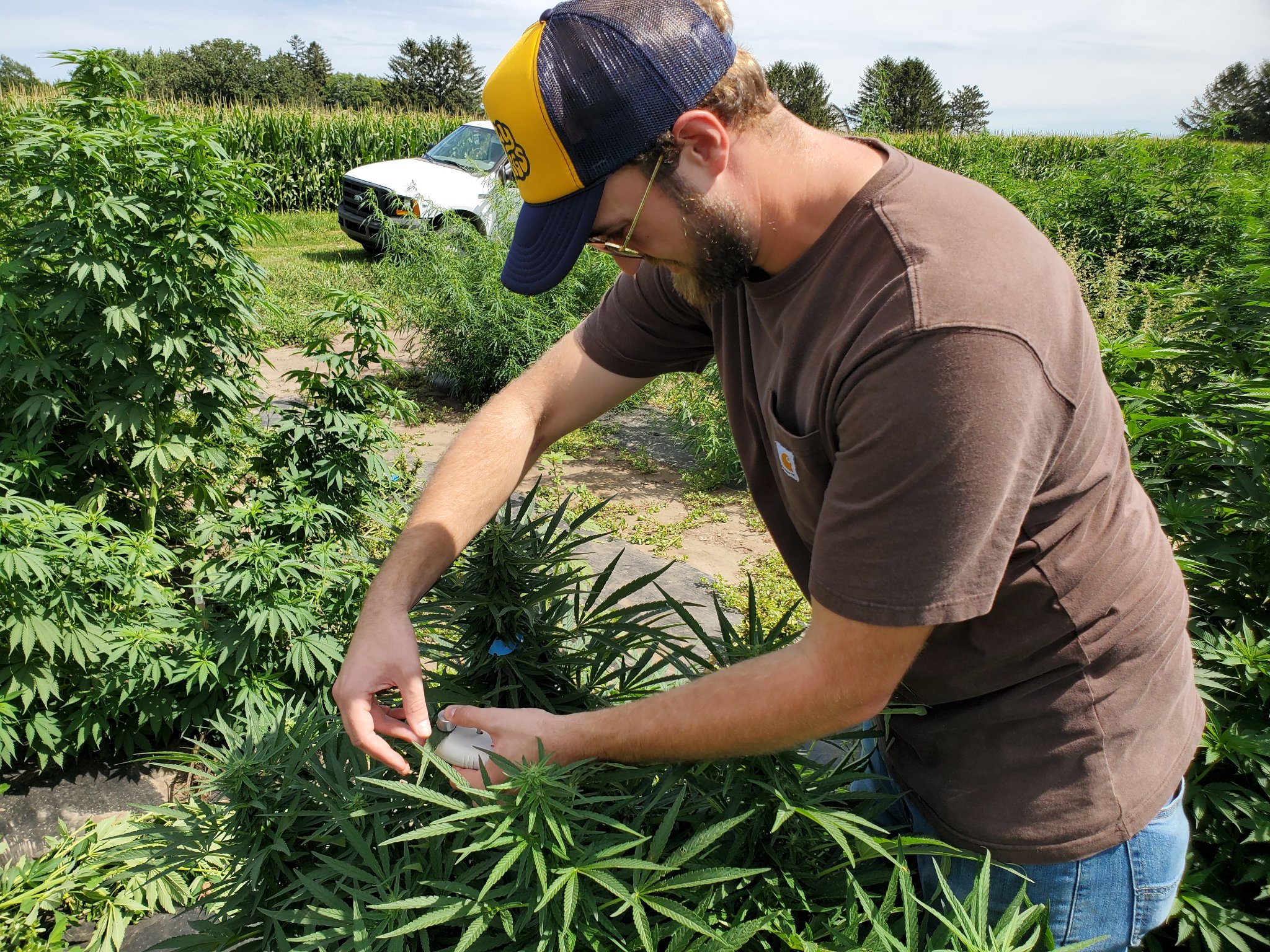
RF: Are there changes to federal law that would make it easier to do some of the research you want to do?
BB: Whether you’re studying hemp or whether you’re studying marijuana, it’s all cannabis. You could come here to our university and walk into one of our greenhouses and see our plants growing, and from 20 feet away, you would have no idea if they’re marijuana or hemp. They look the same, they smell the same. And so, for the most part, we’re able to do the work that we want to do, even though we’re focused on low-THC strains of cannabis.
But once that federal law changes, I think that our lives will become a little more interesting here at the university. That will open up doors to studying some of the effects of the recreational uses of cannabis, which I think are really interesting as well.

